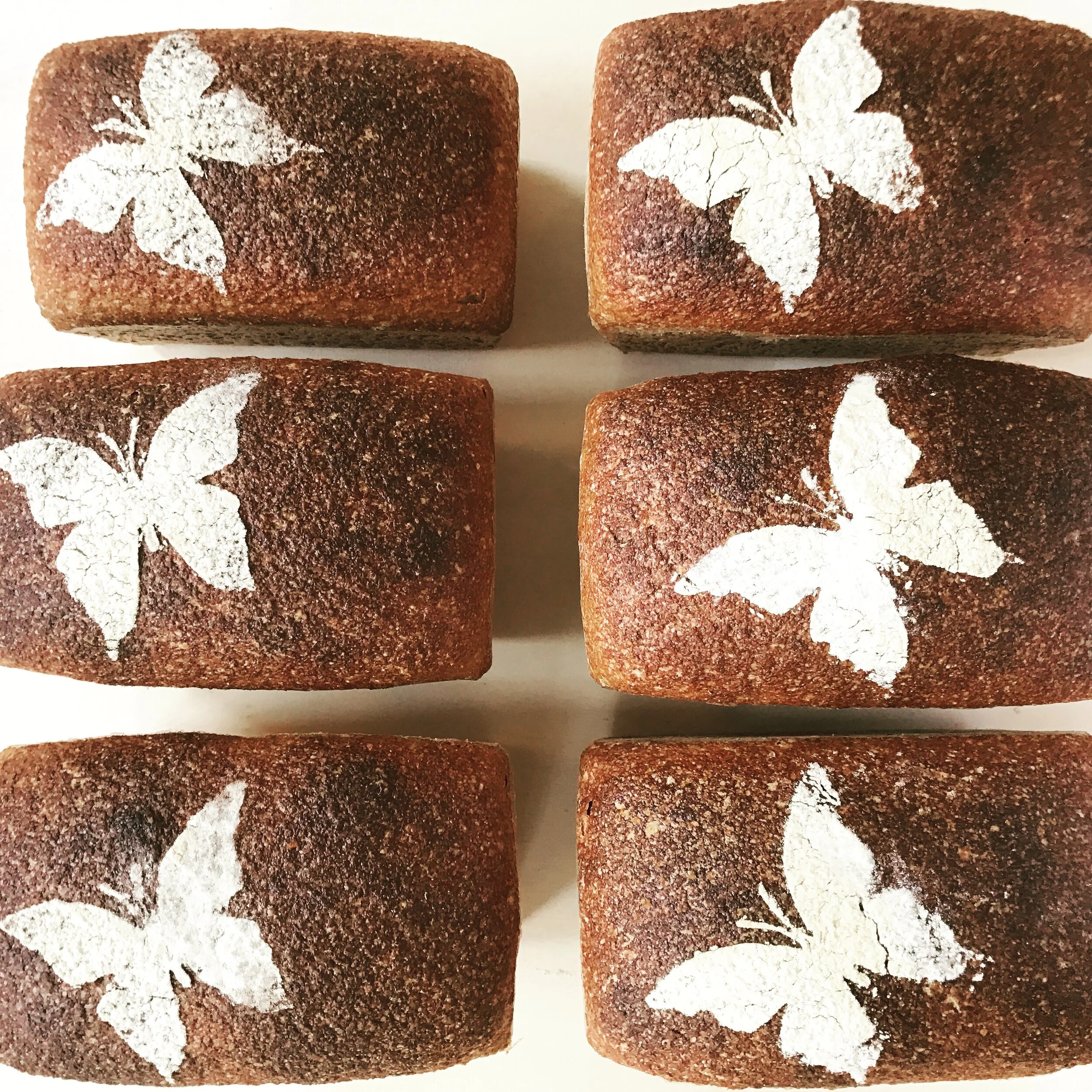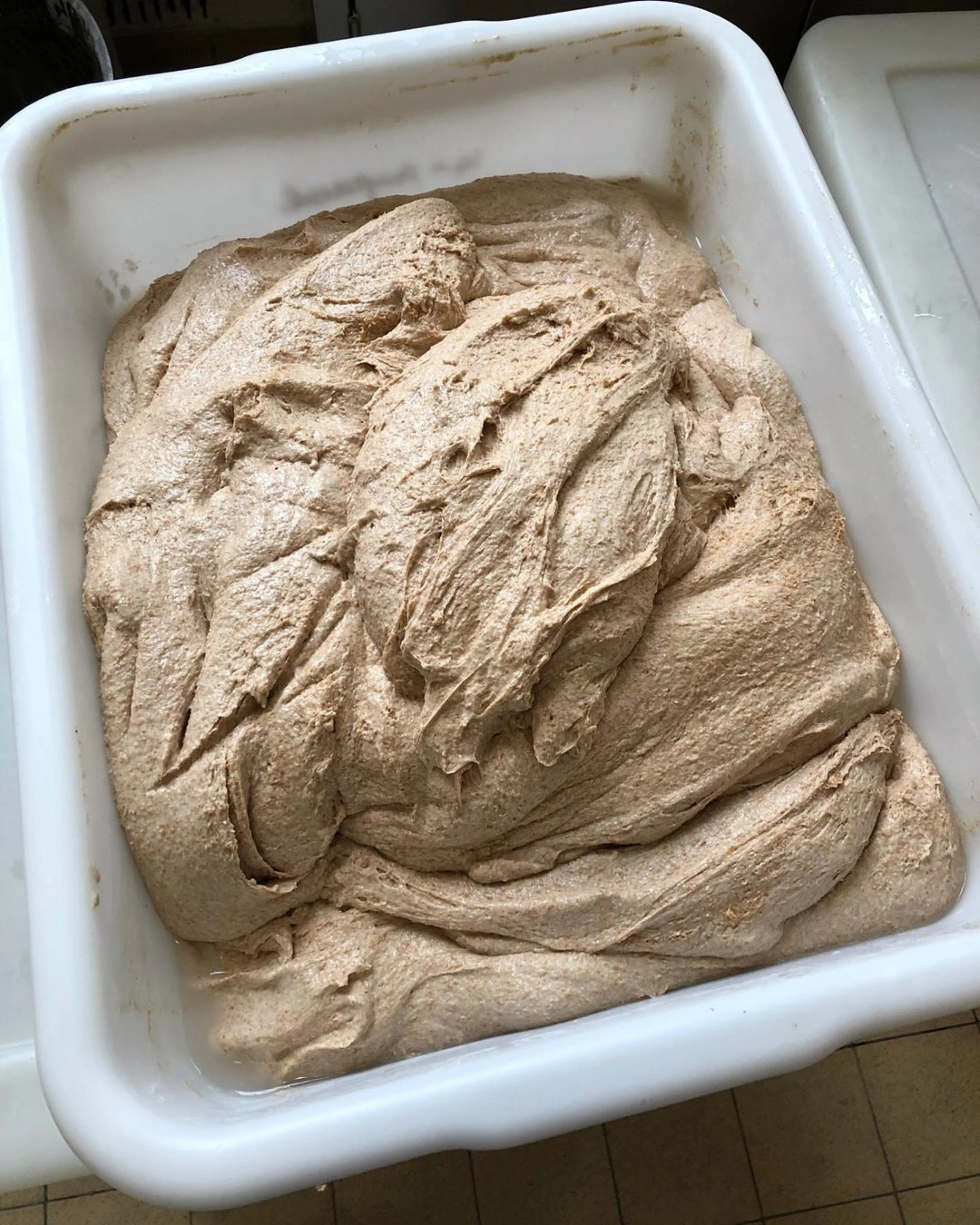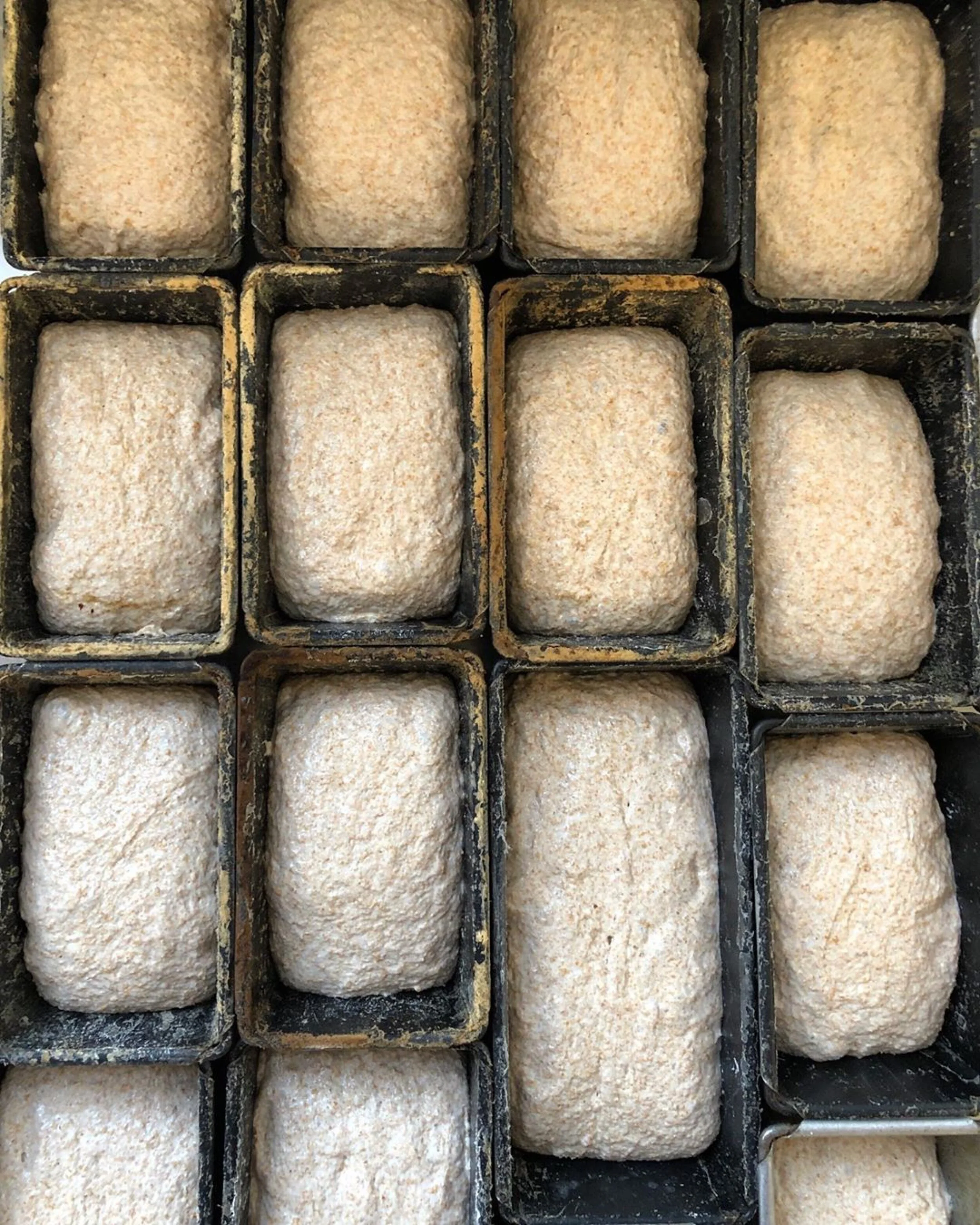YQ Wholegrain sourdough
Image: Matteo Serpi
Image: Matteo Serpi
Wholegrain sourdough, using YQ Wakelyns population wheat
(Makes 1 large tin loaf)
To build the starter:
85g Wakelyns population wholegrain flour
45g ripe Starter (that has been fed a regular intervals)
75g cool water (around 20 deg, warmer if your house is cold)
Mix all of the ingredients, cover and leave to ferment at ambient temperatures for at least ten hours or hours or overnight.
To make the dough:
385g Water at 21 degrees (a little warmer if your house is colder, and think about going cooler in summer)
195g starter from above
500g Wholegrain Wakelyns population flour
13g salt
Mix the dough:
In a large bowl or plastic container (at least 2 litre capacity), mix all of the ingredients until well combined, ensuring there are no lumps.
Rest for 10 minutes
While it rests, consider noting your schedule once you have mixed the dough, write out all of the stages listed ahead and put your anticipated timings next to it.
Take the temperature of the dough at each stage so you know if you need to add more heat or cool it down. The ideal temperature for this dough is 22 deg
Knead the dough:
Tip the dough out on your counter and knead (add energy) to the dough gently for 12-16 minutes (this will depend on your strength or technique). Do not use flour, just accept that the dough is sticky, it will come together through the kneading process. If using a mixer and dough hook, 12 minutes should be enough. You should notice a smoothing out of the dough towards the end of the kneading time. It should feel very different after kneading from when you started. Silky, smooth and elastic.
Prove:
Cover with a lid, damp cloth or cling film and leave in a cool draft free area (19-20 degrees c) to bulk prove for a further 2 hours and 30 minutes.
Give the dough two ‘stretch and folds’ at 30 minutes intervals: Wet your hands, lift one side of the dough gently, stretch it without breaking it and fold it to the middle. Work your way around the bowl until you get back to the beginning.
When the bulk prove period has ended, turn your dough out onto a lightly work surface, and shape them gently into tins (oiled or use non-stick). 1100g per large bread tin. Don’t put too much tension into the dough, just plop it in the tin as neatly as you can. Too much tension will cause it to split.
Allow to rise to the top of the tins in a warm place. 1.5- 2 hours, depending on the temperature. Alternatively, you can retard in the refrigerator overnight (to suit your schedule). Note: baking straight away will give more volume and a lighter texture, retarding overnight will result in a slight loss of volume but possibly a more complex flavour.
Bake:
Bake at 220 degrees for approximately 40 minutes or until your loaf feels lighter, you achieve a deep brown crust colour or the internal temperature reads at least 97 deg c. Tin loaves will release easily when fully baked.
A note of caution when following recipes, but using stone milled, identity preserved natural flours that have not been blended and engineered by millers:
Your YQ flour is pretty special. It has come from a named farm, with its own unique farming system, designed to suit and respect its own unique ecosystem. The YQ population wheat itself is a diverse collection of plants, each with a unique DNA, that allows the crop a library of tools to respond during the growing season, a natural way to adapt and survive the challenges of climate, weed burden and pests.
As such, there will be variability in the crops farm to farm, and year on year and even milling batch to milling batch. This requires the baker to respond, to be awake to the flour, and means that this recipe can only be your guide. Your water quantities & kneading times may require a little adjustment trial and error. Try not to get frustrated if you don’t get perfect results first time, breadmaking with real flour is a practice, and a joy.
Process flexibility is a key principle to de-commodifying our food system. Remember; ‘As we make bread, we make ourselves’. (Tara Jenson said that in her book; Smoke Signals Baking).
Enjoy your baking and very best wishes to all the population wheat baking pioneers, Kim and the team at Small Food Bakery.


